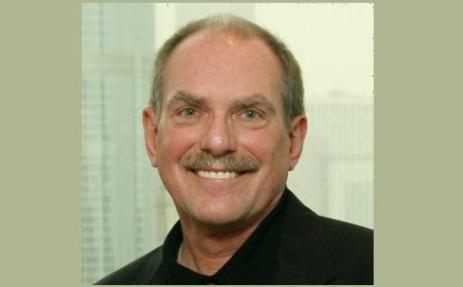A 21st Century City – Part Two

In a recent column here I wrote about Dubai and that it is a 21st Century city. As a futurist I felt at home being there as it feels like a city that is fully looking forward rather than stuck in a legacy past. In this column I want to take a look at some of the dynamics that have shaped this city to be so forward facing. Too many cities in the world are stuck in the past, the recent past or are looking into the future completely through present day problems. What can other cities learn from Dubai?
Dubai exists today because of the vision of a city that was birthed and built by three successive leaders who systematically implemented that vision. The Al Maktoum family has ruled Dubai for the past 200 years. In 1958 Sheik Rashid took over as the ruler of Dubai and was a very hands-on ruler, making twice daily trips through the then small town, seeking interaction with the populace. He saw that the future necessitated the construction of infra-structure, services, and an open policy towards the rest of the world. His view seemed to be decades ahead.
In 1968, the United Kingdom decided to end the treaty it had in place with the seven emirates. Three years later in 1971 the United Arab Emirates was formed and the seven states put in place a Supreme Council that oversaw all the general policies of the U.A.E. This council operated – and operates to this day – as a board of directors, with a President, a Vice President and a Prime Minister. While each emirate is unique and has separate tribal leadership the seven emirates act in collaboration with separate but aligned interests and visions.
In 2006, Sheik Mohammed, the third son of Sheik Rashid became the Emir or ruler of Dubai. His vision was an amplification of his elder brothers and father who had all led Dubai with a complete focus on the future and the opportunities of creating an economic hub of global stature.
Of the seven emirates of the U.A.E., only Abu Dhabi has a large oil reserve, one of the largest in the world. Dubai is the only other emirate with oil reserves and these reserves are expected to be largely depleted in the next decade. Knowing this, the emirs of Dubai realized their future was to create a post-petroleum economy that could succeed without oil revenues and become the financial hub of the Arabian Gulf region and perhaps become a global financial hub. Think the Hong Kong of the Arab Middle East.
Given the relatively small native population and the nomadic history of this population, the Sheiks realized that they needed outside expertise to fulfill their vision. They created free zones where foreign companies could come and operate without having to take on local partners. This was a stroke of visionary genius. In most other developing countries of the world there are all types of restrictions and regulations requiring foreign talent and resources to become minority partners of the local population. This has often led to bureaucracy, graft and slowed development. For companies that had local ownership and control the thinking was to bring in the best and brightest from around the world, support them with necessary social services and let them build successful companies.
A statistic that points to the openness and global orientation of Dubai is that, depending on the source, some 80-90% of the population are not native but have come to this 21st century city from somewhere else. I had the privilege to speak to the upper management of Dubai based Emirates Airlines and found myself speaking to an audience from all over the world. The airline has employees from 137 countries working for them They have been profitable for 20 years, with no subsidies, just superior management implementing long term strategy with a high degree of innovation. Does that sound like any airline you have experienced recently? By the way my experience flying Emirates was simply the best flying experience I have ever had. A 21st century airline.
I found it fascinating that there are specific zones in Dubai for varied businesses. There is Media City where media companies from Dubai and around the world can office. I actually was interviewed by a station owned by Virgin that operated out of the Media City. Just think about the intelligence of providing an entire, large geographical area where media companies from all around the world can office and operate, supported by state of the art infrastructure. That is a model for other cities to implement. There is an Internet City for 21st century interactive companies and a Knowledge City for educational institutions. There is a major manufacturing area. In other words a long term plan incorporating all aspects of 21st century economic and cultural endeavor has been physically put in place.
So why is Dubai a 21st century city and what can other cities learn from Dubai?
First, have a long range vision that looks out several decades. Then work back from that vision and put in place the services, economic structures and infrastructures necessary to support that vision. Attract competent and world class managerial talent to build companies and institutions that manifest that vision. Create a sense of security and freedom for those that live there. Okay, quick, how many cities does that remind you of? That's the point, not many, or perhaps, not any.
Of course the benefit Dubai has that most other cities don't is that it is brand new, only few decades old. That means that it doesn't have to deal with legacies of past land use, old infrastructures, embedded politics and entrenched vested interests. That is in fact why it can and will so quickly become a 21st century city. One aesthetic note worth mentioning is the stunning modern beauty of many of the high rises built in the last 15 years. It is as though the major global architecture firms decided – and were encouraged – to create leading edge designed buildings that might not have been allowed through other urban panning boards. Some of the most beautiful high rise buildings I have ever seen are in Dubai.
Cities of the world do need to cherish their respective heritages. They need to honor their great histories. New York is New York, Chicago is Chicago and LA is LA. That said, they need to stop looking backward, stop thinking that sports teams are the answer to renewal, stop honoring the status quo and the entrenched powers. The Shift Age and the Transformation Decade demand that cities rethink and reinvent themselves. The definition of transformation is a change in nature, shape, character and form of an entity. What is the vision for the city in 2020 and in 2030? What cities can clearly answer that question? Dubai can.
Granted Dubai operates as a benevolent dictatorship but it does seem to be benevolent and certainly feels modern and safe. As long as local Arab customs and beliefs are respected one can live a mostly free and energizing life. The feeling is one of vibrant future facing optimism. Sure there has been a recession that slammed growth to a halt. Sure there are underlying issues that need to be resolved. Sure there will be traffic congestion until the transit system is better integrated. All said being in Dubai is being in a city of today and tomorrow.
David Houle is a futurist, strategist and speaker. He has always been slightly ahead the curve. Houle spent more than 20 years in media and entertainment. Most recently, David is a featured contributor to Oprah.com. Check is out here www.oprah.com/davidhoule. David can be contacted at David@DavidHoule.com.
Read all David’s MediaBizBloggers commentaries at David Houle - MediaBizBloggers.
Check us out on Facebook at MediaBizBloggers.com
Follow our Twitter updates @MediaBizBlogger


